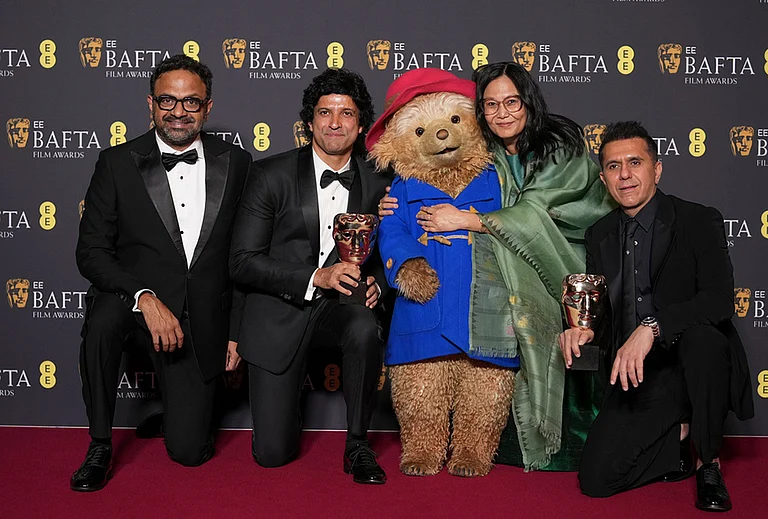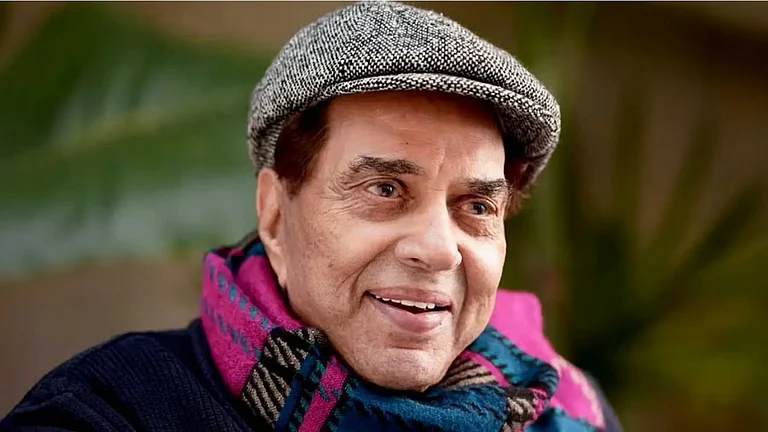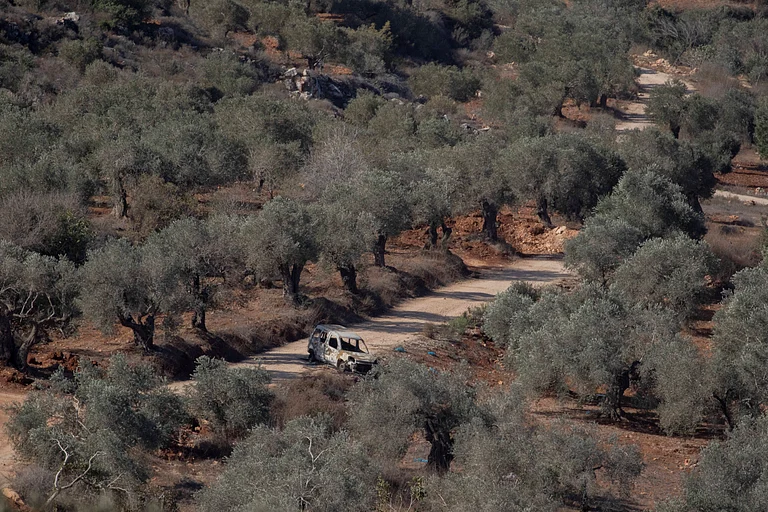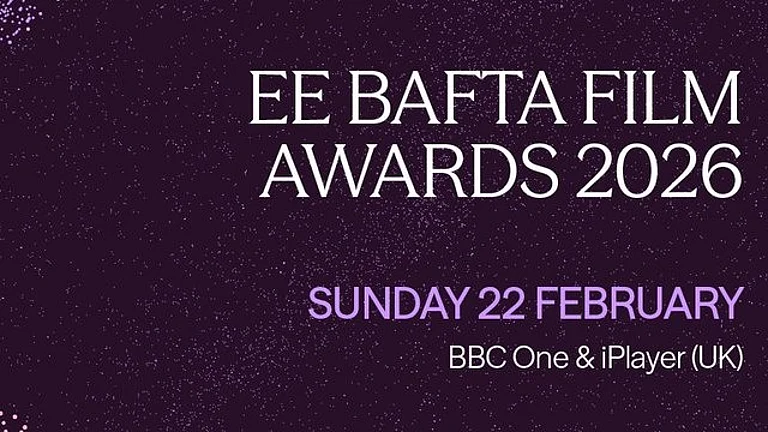
Palestine 36 had its world premiere at Toronto International Film Festival 2025.
The historical epic has been chosen as Palestine's Oscar entry.
The film chronicles the Arab anti-colonial revolt in the late 1930s.
A seminal work by Palestinian filmmaker Annemarie Jacir, Palestine 36, chronicles the year 1936, when the Great Palestinian revolt began amidst the British mandate in Palestine. Delving into historical archives, it maps the events after the Balfour Declaration, where the imperial power committed its support towards the establishment of a Jewish home in Palestine.
It feels incorrect to rate a film that speaks so urgently to our times, but it wouldn’t be wrong to call this historical drama an epic. With an ensemble cast of Hiam Abbass, Kamel El Basha, Yasmine Al Massri, Jalal Altawil, Robert Aramayo, Billy Howle, Liam Cunningham and Jeremy Irons, among others, it was partially shot on location in Palestine and then in Jordan during the genocidal onslaught in West Bank by the Israeli government.
We meet Yusuf (Karim Daoud Anaya), a young man from the village of Al Basma working for a rich Arab family in Jerusalem. His father, a village elder, wishes Yusuf to stay in the village and join the strike (one of the longest in history) protesting the British mandate. Freedom, movement, jobs, trade are controlled by the British; people must carry their identity cards and permits at all times. Arab labor is being replaced by Jews, who also receive benevolent pay, hours and working conditions that Arabs don’t. There's an urgent call for mobilization: “Either we stand up for ourselves or we sit back and watch.”
Within the village, Jacir presents a microcosm of Palestinian society and history. Muslims and Christians live together. Men and women grow tobacco; cotton fields are abloom. Their lands become narrower as zionism spreads. Villages are bombed and land is cleared to make room for the settling Jews whose “countries don’t want them.” Rebellion is afoot—both adults and children part of it. Afra (Wardi Eilabouni) and Kareem (Ward Helou) represent the children of Palestine. Afra wants to learn to drive and move to the city—“I’ll go and never come back,” she says, almost as a premonition. Kareem witnesses and learns the various cruelties of the imperial powers. Resistance is woven in their very being—not as a necessary extension but as the only way to be.
At the inauguration of the Palestine Broadcasting Service, there’s a show of Arab-Jew solidarity. The British declare Arabs and Jews can live together to create a united, peaceful land. The radio shall be used to stray away from political talk and share knowledge and culture instead. Here, the colonizers undermine existing civilization and intellect, as they always have, and attempt to spread “knowledge” of farm techniques to a people with centuries-long experience in agriculture. “This is the part where they educate and elevate us,” remarks Khuloud (Yasmine Al Massri), a journalist passionate about Palestinian liberation, writing under the male pseudonym Ahmad Canaani.

By making this film, Jacir voices history against propaganda. The conflict didn’t begin in 2023—the ethnic cleansing of Palestinians is rooted in the decades-long history of Zionism, which established its structural foothold with support from the British Empire. Not only do they provide protection to settlers, they also set up British-Jewish counterinsurgency units. These become a blueprint for torture, subjugation and oppression in the future. We see Arab newspapers shut down, curfews set up, vehicles intercepted, men, women and children detained, houses plundered and burnt—practices employed and worsened by the soon-to-be-formed ethno-nationalist state Israel.
Yusuf, whom we meet as the reluctant young man, journeys to becoming one of the rebels. His father is shot dead for heading into a settler colony, his brother is tied to a British vehicle and driven into imprisonment. His employer, an elite Arab eager to appease the British and Zionist powers, provides him a seat at the political table, but his voice is ignored. He realizes that armed resistance and rebellion is the only way out. They must lead their own liberation: “If they shoot me, if they arrest me, if they deport me, who will take my place? With every one of us they shoot, our numbers grow. We are one free people.”

The film is deliberate with its symbols and obvious with its intent. Two scenes, however, and both with children, stand out. First is the conversation between Hanan and Afra, when the grandmother tells the child, “Do you know where your land is? Your land is where your people are buried. I can teach you how to use that (gun). You come from a line of brave people who love this land.” Second is when Kareem’s dad, Father Boulos (Jalal Altawil), teaches him endurance by biting hard on each other’s fingers. “I won. Do you know why? Because I endured longer, not because I’m stronger.” These two scenes encapsulate generational resistance and the dream of liberation that becomes every child’s legacy. Loss of innocence and gain of endurance is every child’s fate. The film doesn’t argue, but shows us that violent struggle is inevitable.
The film intersperses narrative with colorized, archival footage that documents the Arab uprising and everyday life in Palestine—not only adding context to the time, but also reminding us that this is a fictional tale of historic truth. “It’s important to know the extent of British participation,” the filmmaker said in The Enlightenment Podcast. Being true to historical artefacts, colors, textiles, design and architecture, military equipment and vehicles, etc., was important to her, as was shooting on location: “It is a privilege to be able to shoot in Palestine.”
As more Jews seek refuge from Europe, an English voice on the radio rings: “Arabs throughout history have shown that the spirit of compromise is deeply rooted in their life. If Arabs, with some sacrifice, could help solve that problem, they would earn the gratitude, not only of the Jews, but of the entire western world.” But the problems of the Western World have always been enforced on colonies, as if it were a shared burden. Knowing the history of the Indian freedom struggle, one recognizes the similarities in imperialist tactics employed and replicated across the world with zero to little understanding of local cultures, geopolitics and people’s histories, and even lesser regard to resulting consequences.

The film calls for viewers and the world to look for truth themselves. In a world that's increasingly denying a documented genocide and consistently engages in hate-mongering and propaganda, it is reaffirming to witness a strong voice of dissent attempting to show the way and bring forth truth. As Khuloud leads in a protest, “Palestine was not Balfour’s to give.”
Watching Palestine 36 is harrowing but necessary. With unapologetic nuance, it manages to detail decades of oppressive history in 120 minutes. Despite loss and destruction, we see the unbreakable spirit and resistance of the Palestinian people, voicing their truth amidst war-mongering, fighting for their land amidst bloodshed. When the press is demolished, Khuloud keeps writing news without the press. Torn away from their families, Afra escapes and Kareem is forced to take up arms; endurance and rebellion with no moment of respite become their guide. If there is to be a free Palestine, the child must “Stand up. There’s work to be done. It’s not the first time, not the last.”
The film is Palestine’s official entry to the 98th Academy Awards. It had its UK premiere at the BFI London Film Festival, and is playing in cinemas across the UK from 31st October.


























